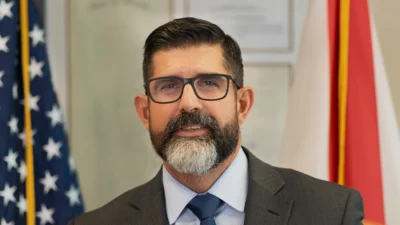. | .
. | .
A series of workshops sponsored by the Webster Institute of Clinical Scholarship and the Department of Professional Counseling will focus on race-based trauma and how to diagnose and treat it. The workshops are designed for counselors and counselors in training, as well as those in the community who perform diversity, equity and inclusion work in the community or are interested in the long-term impacts that racism has on societies and individuals.
Counselors, therapists, social workers, psychologists and other mental health professionals will be able to earn continuing education credits (CEU’s) required for license renewal.
“A lot of discussion about racial trauma that we see in the public focuses on well-publicized events, such as the killing of George Floyd, the mass shooting at Tree of Life Synagogue, or the shootings at Asian-owned hairdressers in Dallas,” said Webster University Counseling Professor Muthoni Musangali. “While those events triggered trauma in many, it’s the daily slights, racists comments and institutional barriers directed at marginalized people that has a greater, longer-lasting negative impact on a person’s behavior and self-image. It also can be harder to diagnose because from an outsider’s perspective, it can be difficult to determine if the trauma is being caused by racism, or if there are other factors that are the underlying cause of any issues.”
The workshops will be held online through Zoom and will be presented by Webster University Assistant Professor of Counseling Claire Martin. She holds a Ph.D. in Counselor Education and Supervision from the University of Missouri-St. Louis, an M.Ed. in Clinical Mental Health Counseling from the University of Missouri-St. Louis, and an M.A. in Psychology from the City University of New York-Hunter College. She also is a practicing licensed counselor with an emphasis on trauma.
The sessions are free, but registration is required for each class. Participants can choose to attend individual courses, though it is recommended that those who are working toward CEU’s participate in all five sessions. Registration for any session is available online.
The sessions will be split into the following topics and themes:
January 18: Understanding Race-Based Traumatic Stress. This session will address social determinants of race-based trauma, including sociocultural factors. Participants will also learn updates on the diagnosis and assessment of racial trauma.
Objectives:
1. Attendees will learn about the history of racism in the U.S. and the ways it is embedded in policies and practices that impact clients of color.
2. Attendees will learn about the difference between racial trauma and other forms of trauma.
3. Attendees will learn about the most prominent research on ways to assess and potentially diagnose racial trauma.
February 15: Imprints of Racial Trauma on the Body and the Brain. There is ample evidence in the literature pointing out to the toxicity of racism. This session will focus on the neurobiological impact of race-based traumatic stress on individuals’ and communities’ health.
Objectives:
1. Attendees will explore the ways in which racism constitutes to public health crisis.
2. Attendees will examine the association between environmental racism, racially-based Adverse Childhood Experiences (ACEs), and presentation of racial trauma later in life.
3. Attendees will learn the debilitating effects of racial discrimination on the physiological and emotional well-being of those impacted.
March 22: Racial Trauma Healing and Resilience. This session will explore mitigating factors for experiencing race-based stress and best practices that foster racial trauma healing.
Objectives:
1. Attendees will learn about recent research on resiliency as it relates to racial discrimination.
2. Attendees will learn about potential protective factors.
3. Attendees will learn tangible ways to help clients heal from the adverse effect of race-based stress through resilience building.
April 19: Racial Trauma and Supervision. Clinical learning environments often constitute a microcosm of the larger society that can enable systems of inequality and oppression to thrive. Clinical supervisors are responsible for creating safe learning environments for CT to develop into global citizens who are culturally competent to serve diverse populations. This presentation will explore how systems of oppression may present in clinical supervision and their impact on the CT and clients.
Objectives:
1. Attendees will learn occurrences of race-based incidents in clinical supervision, how to identify them, and ways to mitigate potential race-based stress in supervision.
2. Attendees will learn concrete ways to assess counselors’ wellness; provide advocacy, support, and trauma-informed supervision.
3. Attendees will learn best practices for supervising CT directly impacted by race-based stress and those working with clients impacted by racial trauma.
May 17: Racial Trauma and Mental Health Professionals. Similar to other helping professionals, mental health professionals are often at high risk of experiencing vicarious trauma. As such, it is imperative that they learn effective coping strategies to minimize the risks of being retraumatized.
Objectives:
4. Attendees will learn about the impact of racial trauma work on mental health professionals.
5. Attendees will learn ways to support CT working with clients who have experienced racial trauma.
6. Attendees will learn practical strategies to avoid burnout and compassion fatigue.
On June 10, Webster University will host its annual Summer Symposium, which will feature presentations from experts and community leaders in the topic of Racial Trauma. It will include education sessions from Webster University WICS Scholars, poster presentations, and community expert panel discussions. Participants will have the opportunity to earn up to 6 CEUs. Details to follow.
To learn more about Webster University’s Department of Professional Counseling or the Institute of Clinical Scholarship, visit https://www.webster.edu/science-health/professional-counseling/index.php .
The Webster Institute for Clinical Scholarship’s BHWET grant is supported by the Health Resources and Services Administration (HRSA) of the U.S. Department of Health and Human Services (HHS) as part of an award totaling $1,083,454 million with 0% percentage financed with non-governmental sources. The contents are those of the author(s) and do not necessarily represent the official views of, nor an endorsement, by HRSA, HHS, or the U.S. Government. For more information, please visit HRSA.gov .
Original source can be found here.




 Alerts Sign-up
Alerts Sign-up